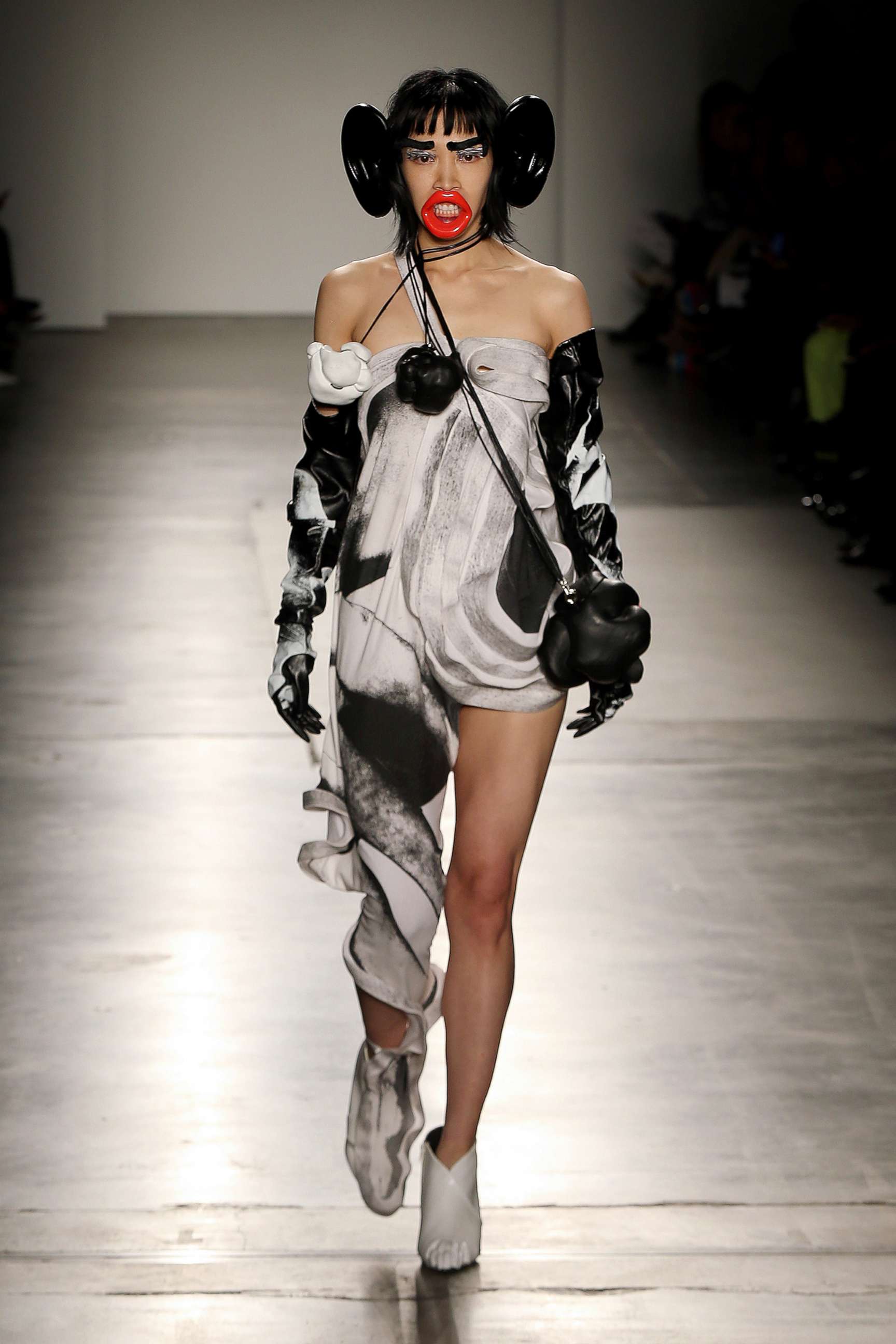Fashion Institute of Technology apologizes for racist runway show
A black model refused to wear an outfit with large prosthetic ears and lips.
One of the top New York fashion schools issued a mea culpa Tuesday for allowing racist imagery at one of their shows this month.
Black model Amy Lefevre told several news outlets that she refused to walk down the runway in the Fashion Institute of Technology's alumni show on Feb. 7 because she was required to wear an outfit that featured large prosthetic ears and lips and bushy eyebrows, similar to racist black caricatures. Other models walked down the runway with the accessories and generated criticism around the country.
Joyce Brown, the school's president, released a statement Tuesday, acknowledging that the design was offensive.
"Currently, it does not appear that the original intent of the design, the use of accessories or the creative direction of the show was to make a statement about race; however, it is now glaringly obvious that has been the outcome," she said in her statement.

Brown apologized to "those who participated in the show, to students, and to anybody who has been offended by what they saw." Representatives for Q Model Management, which represents Lefevre, didn't immediately return messages to ABC News for comment.
The school's president said it would be taking steps to rectify the damage from the incident and ensure it doesn't happen again. Brown said administrators will meet with the school's diversity council, faculty, student government association and employee union to talk about race and FIT will implement "safeguards to ensure that a situation like this will not happen again."
"Regardless of intent or artistic vision, we must be continually aware of that which constitutes an authentic artistic expression, and that which creates a risk to the intended message and interpretation of the art form. There is no room for error which can be interpreted as racism, homophobia, religious intolerance or any other kind of bigotry," Brown said.




